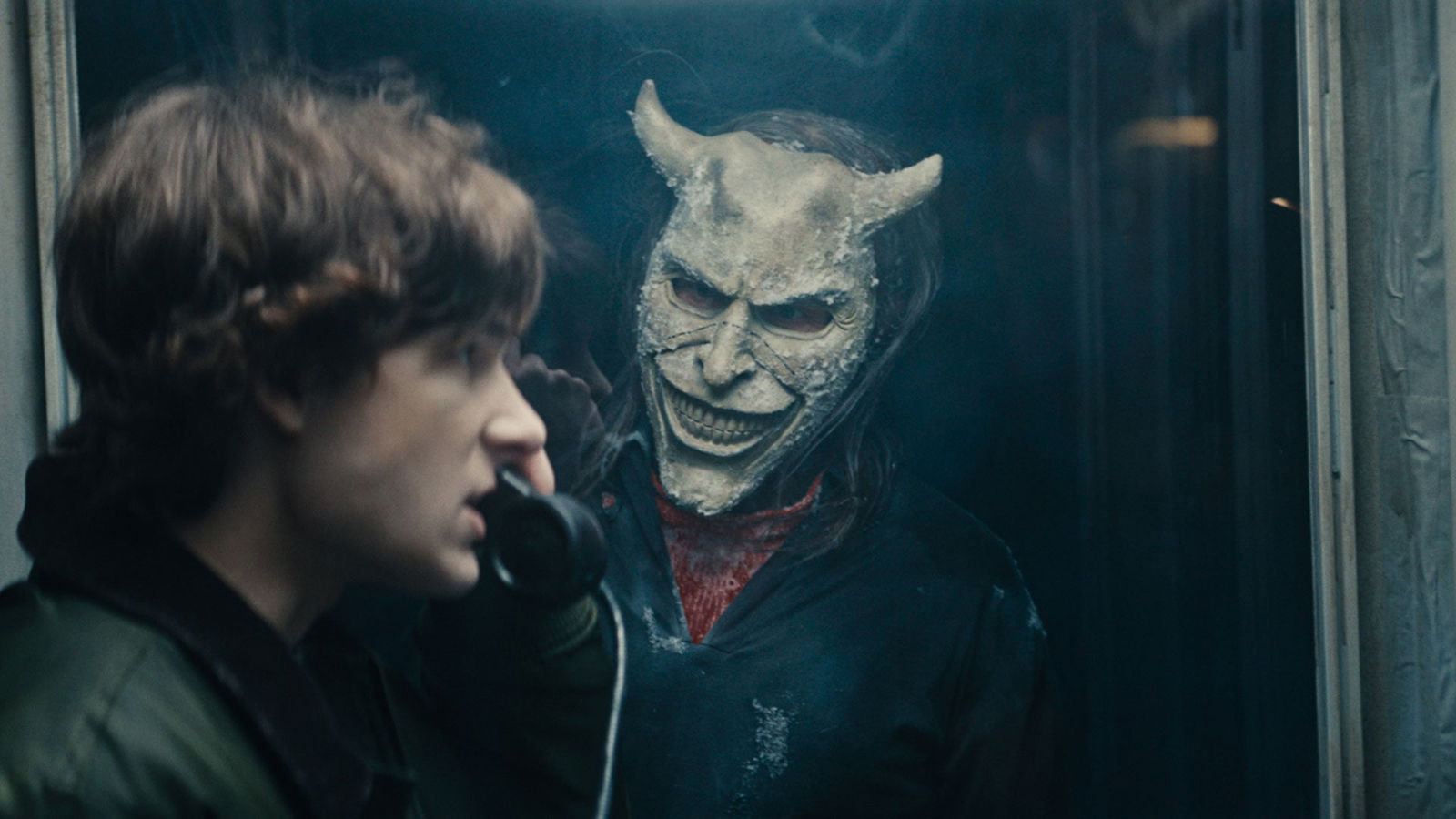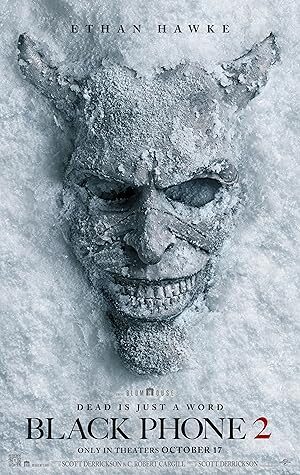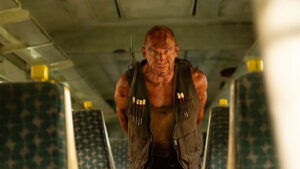The Black Phone was one of those films that impressively made the most of its small-scale concept. Based on Joe Hill’s short story of the same name, it felt like a one-off tale, making the announcement of a sequel all the more perplexing following the first film’s huge box-office success. How can there be a follow-up when the villain died definitively in the last movie?
According to writer-director Scott Derrickson and frequent co-writing partner C. Robert Cargill, the answer is to go full Nightmare on Elm Street right from the start. It’s an interesting direction for Black Phone 2 to take, and one that still feels logical in the series’ supernaturally tinged world, even if it comes with a bigger set of issues.
The year is 1982, four years after Finney (Mason Thames) was abducted by child serial killer The Grabber (Ethan Hawke). Even though he managed to kill The Grabber with the help of ghostly phone calls from the killer’s previous victims, the events still haunt him. He spends his days fighting classmates who look at him funny and his nights smoking weed to cope—not to mention the numerous calls from decommissioned phones he continues to ignore. Meanwhile, his physically inclined younger sister, Gwen (Madeleine McGraw), begins having disturbing visions of dead children in her sleep.
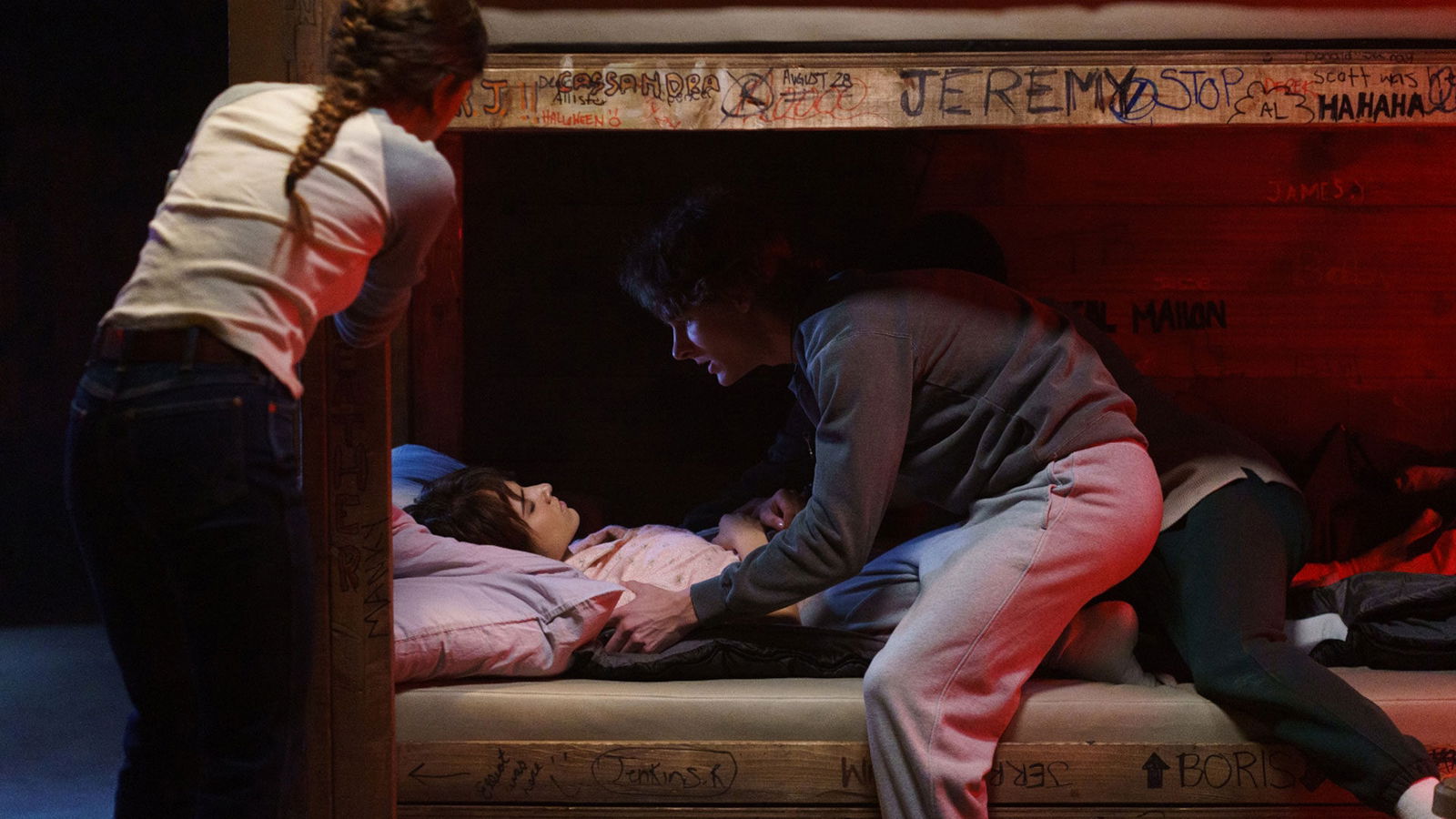
Connecting the kids to a Christian youth camp named Alpine Lake—a place their late mother attended as a child—the siblings, along with Gwen’s classmate Ernesto (Miguel Mora), decide to investigate. Once they arrive at the sparsely staffed campsite during a blizzard, they make a horrifying discovery: The Grabber is back, and he’s very, very angry. Now, on the other end of the phone, he taunts Finney from beyond the grave and swears revenge on both siblings.
“Black Phone 2’s biggest strength is its visual flair…”
Black Phone 2’s biggest strength is its visual flair, especially in scenes where Derrickson and cinematographer Pär M. Ekberg switch between digital and Super 8 photography to distinguish the real world from the dream world. It’s a technique Derrickson previously explored in Sinister, and the grainy visions of the children’s deaths in Black Phone 2 are just as disturbing as any of the reels from that earlier film. Little moments—like a reel flickering just as a stove swings open, or melting during an intense sequence—add texture to the movie’s appropriately chilly atmosphere. The effect also makes some of the film’s visceral gore look even nastier.
The sequel also makes the wise choice to shift Gwen into the lead role this time. Madeleine McGraw and Mason Thames once again deliver strong performances. The two are snarky with one another but remain driven by a shared need to protect each other from their respective traumas—even if Gwen’s overly verbose insults become tiresome by the film’s end. At times, the film plays more like a family drama, especially in scenes involving the siblings’ fraught relationship with their recovering alcoholic father (Jeremy Davies).
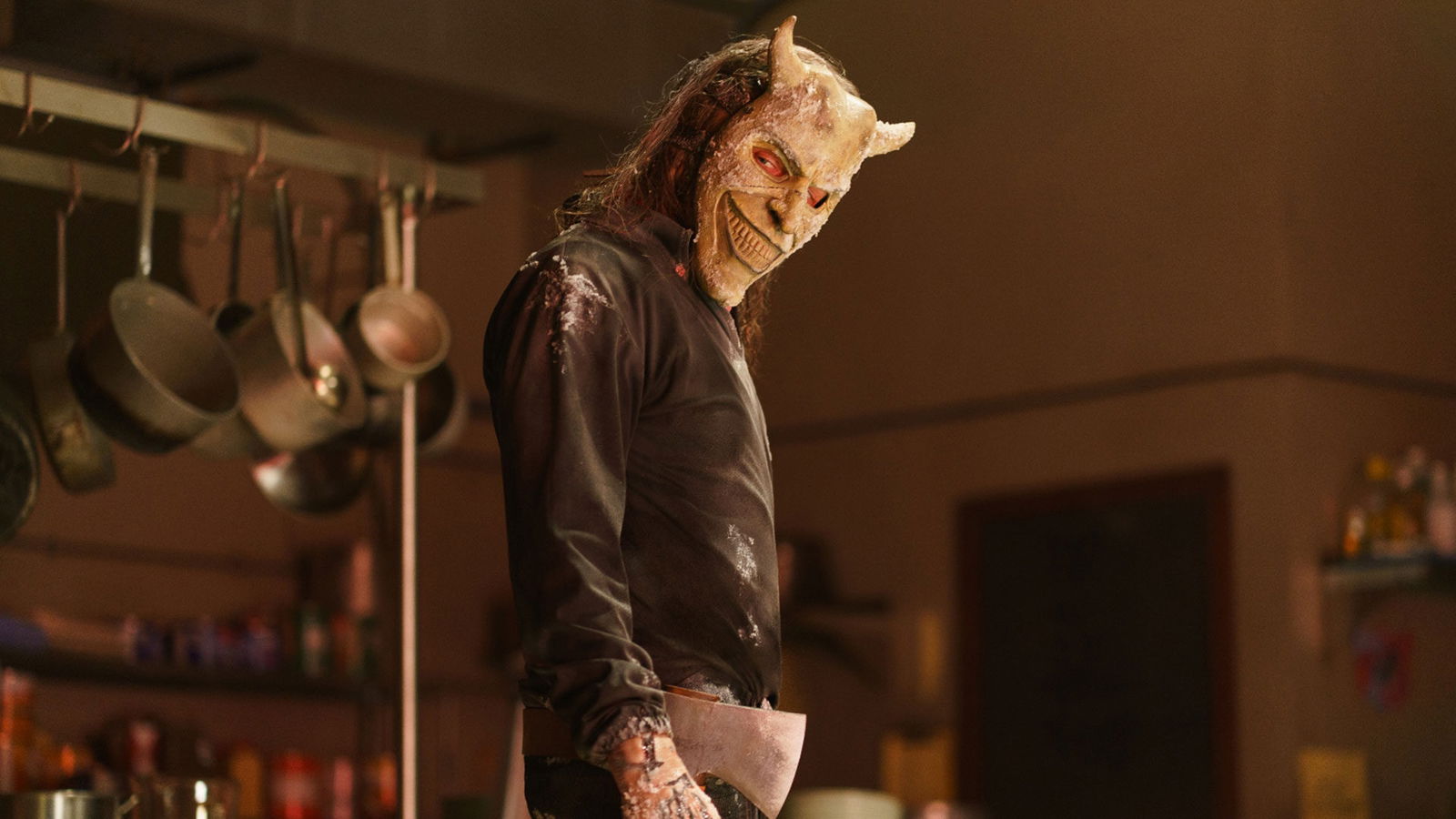
As for the Grabber, Ethan Hawke has much less to do this time and is generally one-note. Still, he remains delightfully unsettling in the moments he does appear on screen and gets some great lines throughout. One particularly memorable quote comes when he proclaims that Hell took everything else that made him human, and all it left behind was rage.
“Black Phone 2 is a fun time, though it left me missing the original’s tighter scope.”
Unfortunately, Black Phone 2’s script is also its biggest weakness. While investigating the children, Gwen begins receiving her own phone calls from the camp’s decommissioned phone booth and starts digging into the past. Several major story reveals are undercut by characters blurting out exposition, rather than allowing the moments to breathe. It often feels as though the film doesn’t trust the audience to put two and two together.
One of my biggest pet peeves is when period films shoehorn pop culture references into the dialogue. While the one in Black Phone 2 is minor—a scene in which Gwen is asked out to a Duran Duran concert during the film’s opening—it still feels more distracting than immersive.
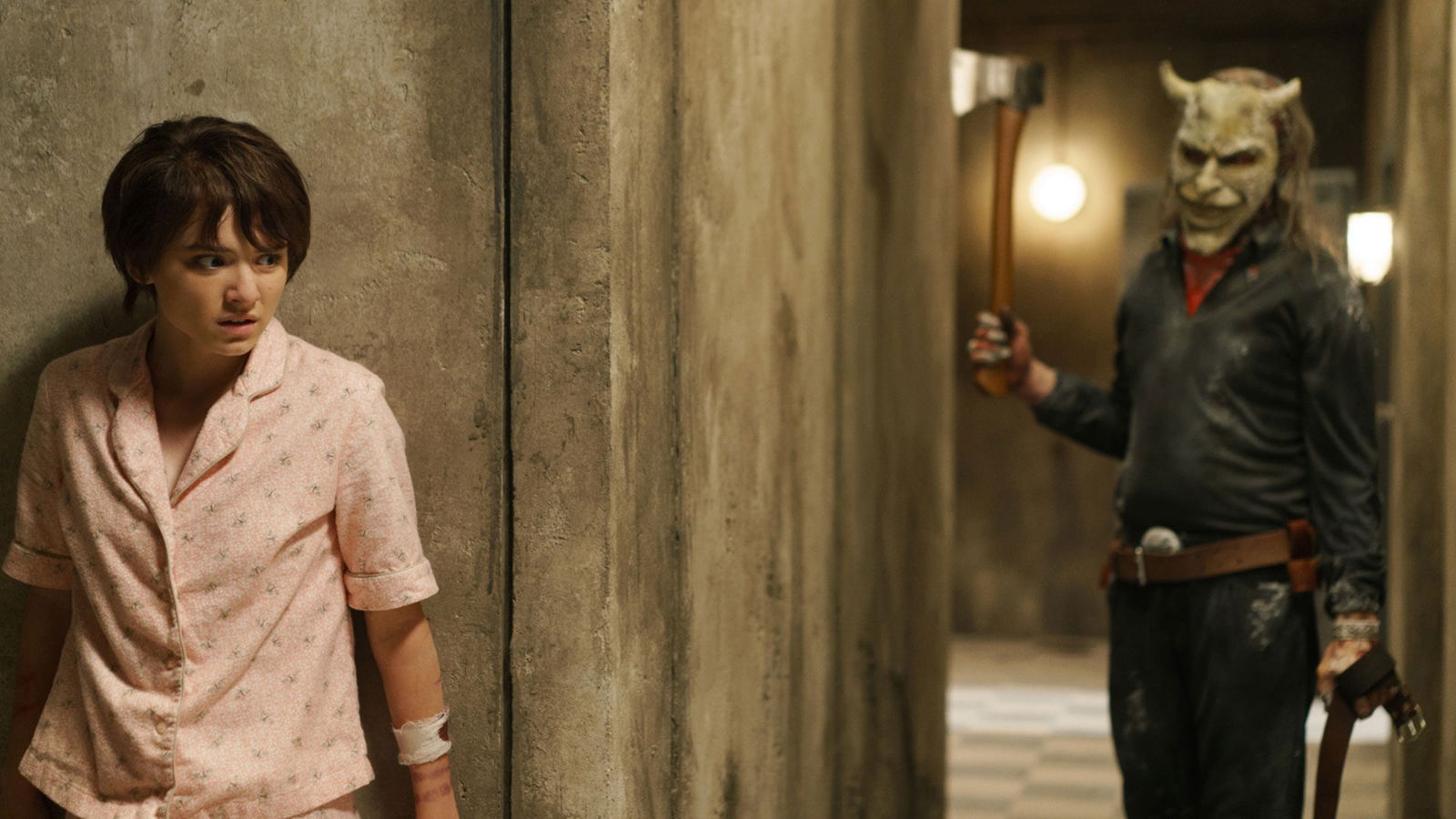
Additionally, it’s hard to become attached to most of the new characters. Demián Bichir does his best with limited material as Camp Alpine supervisor Armando. But the camp’s other staff—which includes Arianna Rivas as Armando’s niece Mustang, and Graham Abbey and Maev Beaty as the obnoxiously religious couple Kenneth and Barbara—lack personality, and that never really changes throughout the film. The lone exception is Miguel Mora as Ernesto, who plays the brother of Finney’s late friend (and Grabber victim) Robin. His budding romance with Gwen is sweet and offers a much-needed source of levity.
If anything, most of the new characters feel like filler—bodies set up for the Dream Warriors-style battle that unfolds in the final act. It’s still an impressive fight sequence, as the Grabber skates around, axe in hand, attempting to take out the rest of the cast in both the dream and real worlds simultaneously.
All in all, Black Phone 2 is a fun time, though it left me missing the original’s tighter scope. I still don’t believe there’s much left to explore here for a long-term franchise. But for what it’s worth, the striking imagery and entertaining third act make it worth checking out.
